Hunger strikers demand justice for Breonna Taylor
Black Lives Matter protests are still reverberating and now protesters in the US are on hunger strike seeking justice for Breonna Taylor, a woman killed at home by police in March. Marie Claire's Dami Abajingin asks why the killing of black women is rarely centre stage in narratives about police brutality and why #SayHerName matters
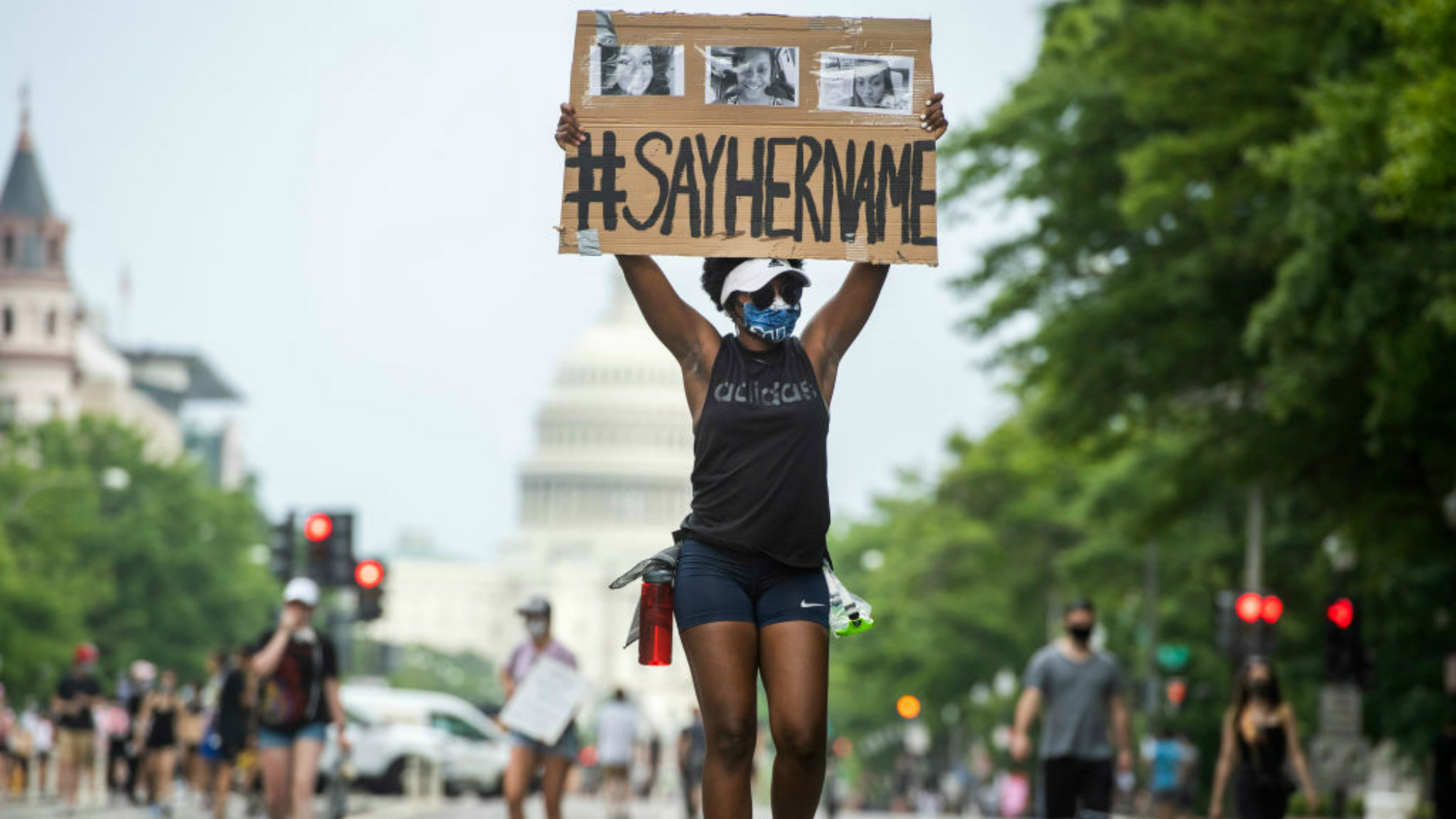
Black Lives Matter protests are still reverberating and now protesters in the US are on hunger strike seeking justice for Breonna Taylor, a woman killed at home by police in March. Marie Claire's Dami Abajingin asks why the killing of black women is rarely centre stage in narratives about police brutality and why #SayHerName matters
This year Breonna Taylor should have been celebrating her 27th birthday. Taylor was a key worker, an emergency room technician who dreamed of becoming a nurse.
But shortly after midnight on March 13th, three plainclothes police officers entered her home using a no-knock search warrant - a court document authorising police to enter a home without permission. Taylor and her boyfriend, Kenneth Walker, were reportedly asleep when the commotion began. Walker (a licensed gun owner) called 911 and, thinking the drug raid was a burglary, shot at one of the police officers hitting him in the leg; the police retaliated with more than 25 bullets.
Taylor was shot eight times. She died on her hallway floor. According to her family, Taylor took 'five to six minutes' to die from her injuries and did not receive urgent medical care from the officers.
Police had suspected Taylor's flat was being used to receive drugs by a gang based at a different address 10 miles away. One of the suspects was an ex-boyfriend of Taylor. What makes this case even more saddening is the suspect they were searching for was already in custody. No drugs were found in the property. Not one of the officers have been charged to date. Ex-Detective Brett Hankison, was accused of 'blindly' firing 10 rounds into the apartment, displaying 'an extreme indifference to the value of human life' was fired but is appealing the decision. A lawsuit filed by Taylor's family accuses the officers of battery, wrongful death, excessive force and gross negligence.
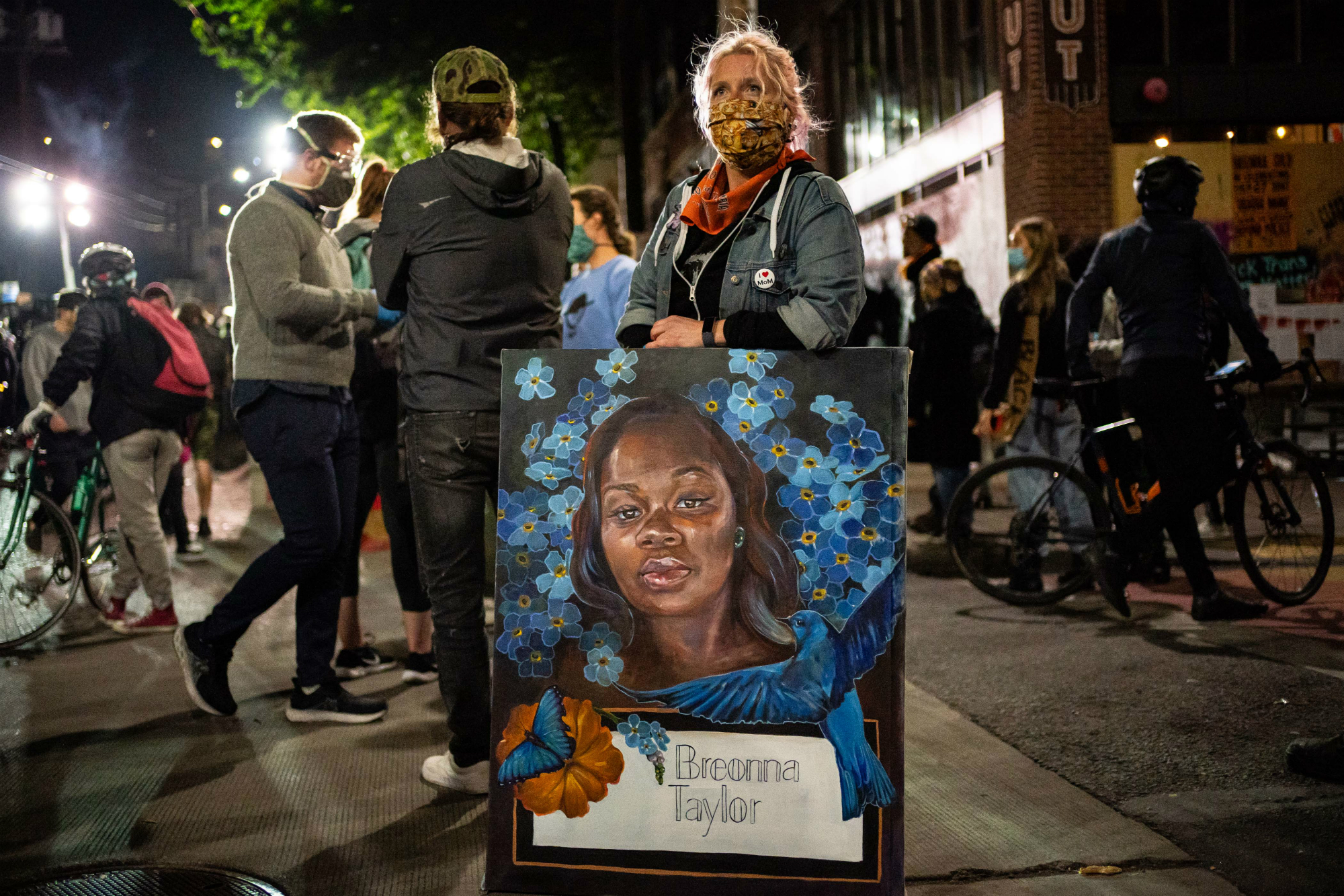
Now four hunger strikers in Louisville, Kentucky are demanding two city officers involved in Taylor's death - Sgt John Mattingly and Detective Myles Cosgrove - be fired and stripped of their pensions. The four strikers will live-stream their strike on their Facebook page, Hunger Strikers for Breonna.
One of the strikers, Ari Maybe, spoke to local paper Courier Journal, about the hunger strike on private property. 'It's not like a sit-in, where we can be arrested. It's not like a protest, where there's a beginning and an end. We control the beginning, the end and the entire narrative.'
Marie Claire Newsletter
Celebrity news, beauty, fashion advice, and fascinating features, delivered straight to your inbox!
Maybe explained that the strikers will have support from around 35 others, including medical personnel and a crew responsible for the Facebook stream.
The deaths of many black women, like Taylor, killed by police rarely receive the same response as the death of black men. As a black woman, to say this makes me feel devastated would be a huge understatement. To be clear, it is not by any means a competition - every single one of these deaths (and the countless others we are unaware of) are a tragedy. However, the fact of the matter is after a black woman is killed by police there are hardly ever protests, no public outcry. Even in death, the lives of black women and girls are seen as being of less value. This gave rise to the #SayHerName campaign; a social movement that seeks to raise awareness for black female victims of police brutality and to ensure that racism faced by women is not left out of the Black Lives Matter movement.
It's been argued that when black women and girls such as; Aiyana Stanley-Jones, Tanisha Anderson, Atatiana Jefferson and Charleena Lyles are killed by police it is often in their homes - and because of this domestic location there is no viral video to fuel the outrage that their deaths also deserve. However, I don’t think it is that simple. There are many murders of women that have generated huge public outcry and these murders have no accompanying video footage – but they have happened to white bodies. Piers Morgan argued on Good Morning Britain that if Madeline McCann was a black girl her disappearance would not have garnered as much media attention. His statement was met with shock by many non-black women but he was simply saying something most black women know to be true - something which is reaffirmed every single time the loss of a black female life goes unnoticed.
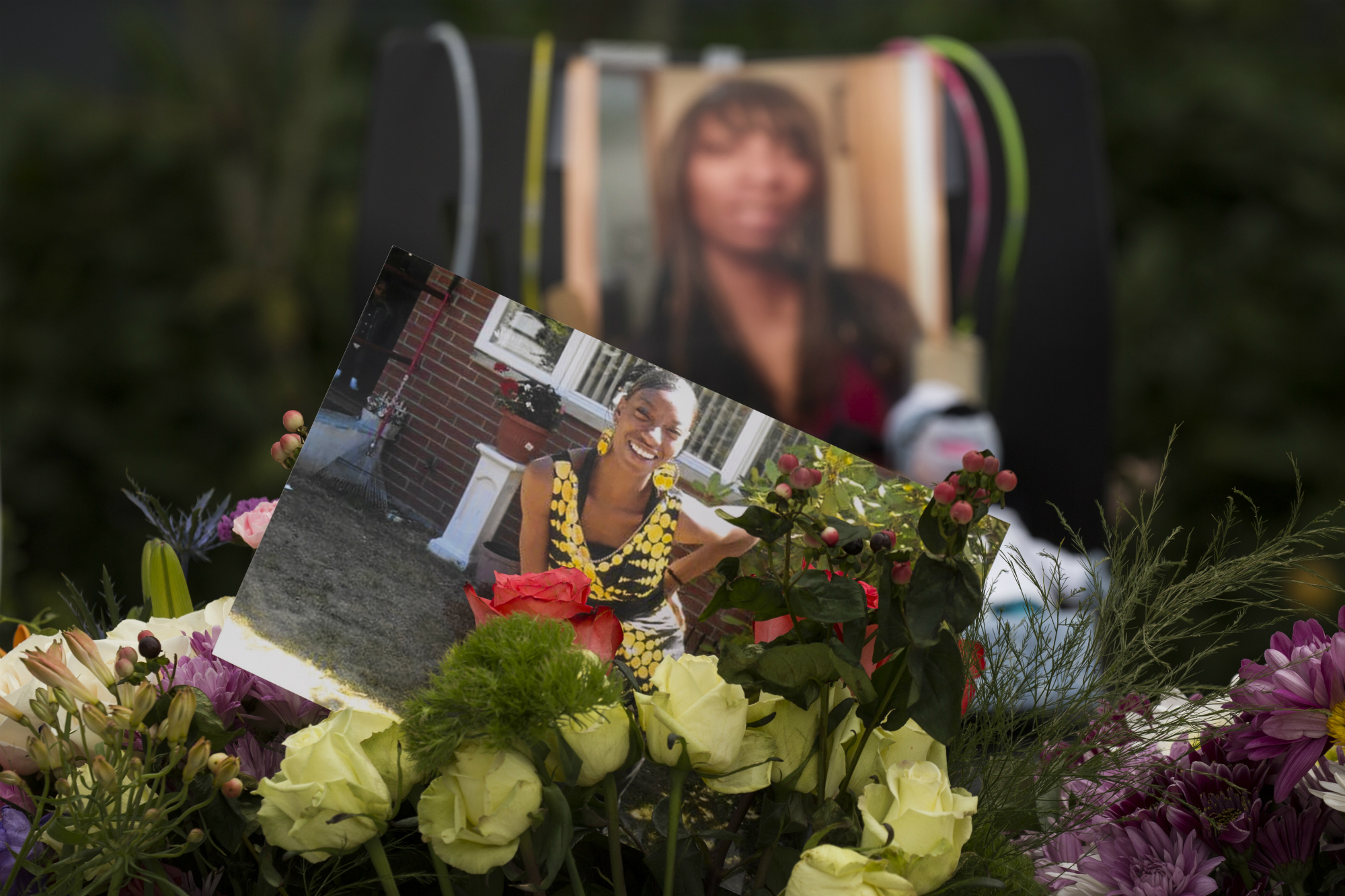
The need to bring black women into the narrative cannot be overstated; time and time again the stories of black women killed by police are excluded from the national, let alone the international news agenda. Many UK news outlets have only recently published the story of Breonna Taylor's death in the first week of June. She was killed in March. As a society, each and every one of us can take meaningful steps towards changing this. Being an ally means taking action; it is not a performative post - it is beyond a black box. If you would like to show solidarity, here are some suggestions on where to begin.
Say her name - don't forget their names
1 Sign the official petition for justice for Breonna Taylor
This is demanding the officers who unlawfully shot Taylor to be charged and arrested.
2 Support black women
On Blackout Tuesday and for days following there were thousands of posts praising black-owned fashion and beauty brands and content creators. This has to be sustained; a one-off is not good enough.
3 Empower yourself with knowledge
Many have said they are listening but are they actively seeking? Asking your black friend to educate you; while it may be well-meaning, is actually rather indolent - especially during this difficult time. There are a plethora of resources, Black Feminist Thought by Patricia Hill Collins is a great place to start.
The leading destination for fashion, beauty, shopping and finger-on-the-pulse views on the latest issues. Marie Claire's travel content helps you delight in discovering new destinations around the globe, offering a unique – and sometimes unchartered – travel experience. From new hotel openings to the destinations tipped to take over our travel calendars, this iconic name has it covered.
-
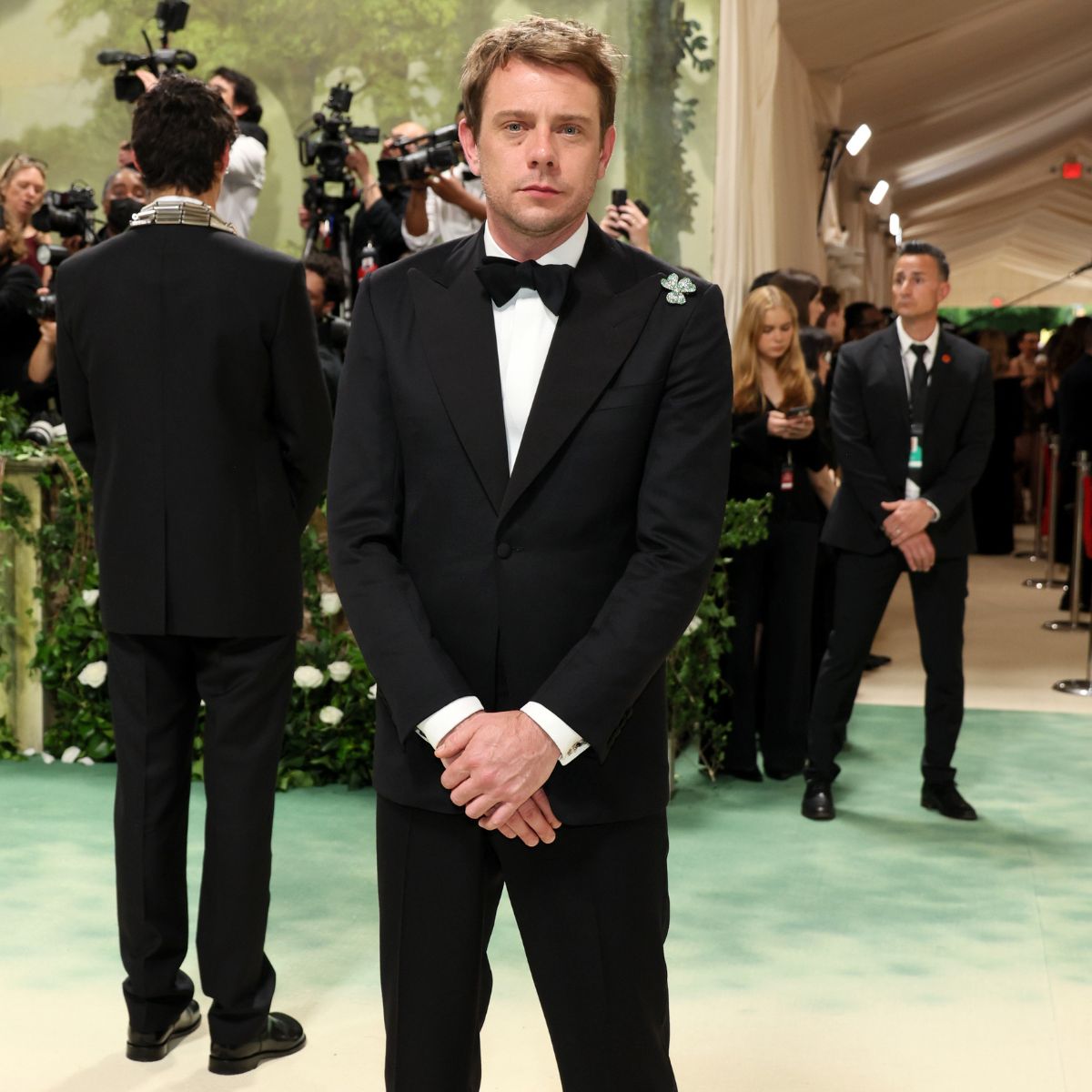 Jonathan Anderson is going to Dior Men
Jonathan Anderson is going to Dior MenHis debut collection will be this June
By Mischa Anouk Smith
-
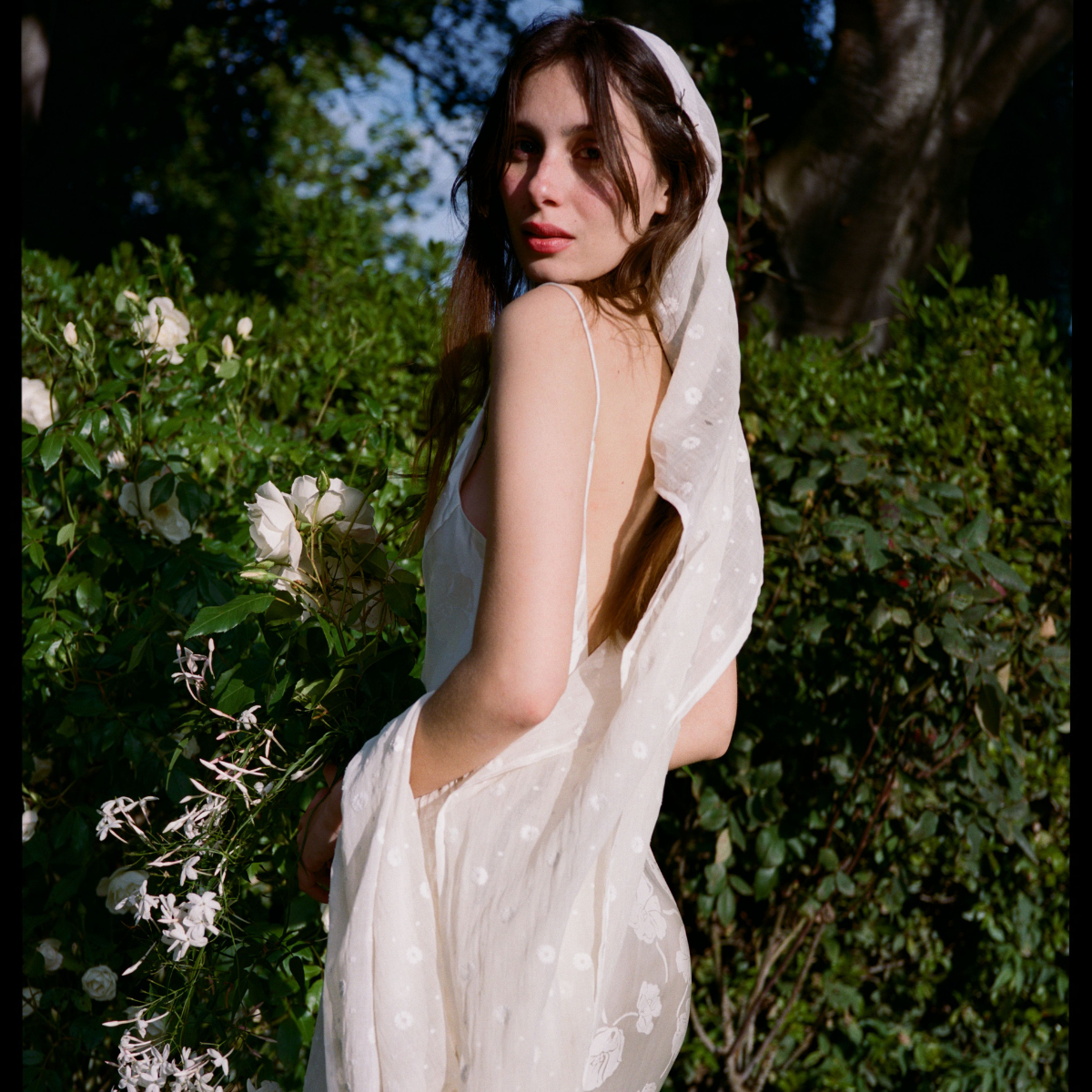 I'm a 2025 bride and these are the best affordable wedding dresses I've found
I'm a 2025 bride and these are the best affordable wedding dresses I've foundLess than £1,000 but still the height of chic
By Sofia Piza
-
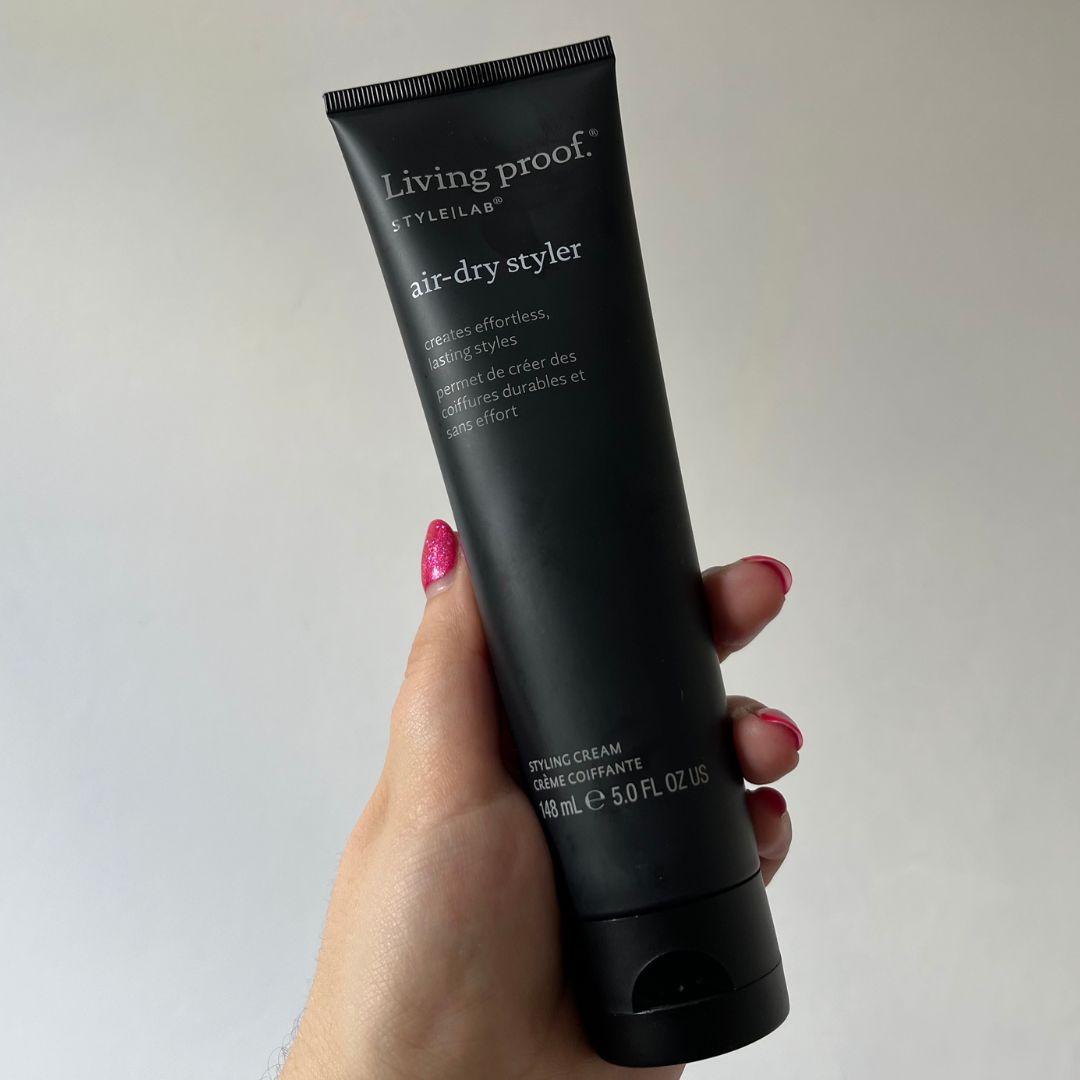 I haven't worn my hair completely natural for years, but this air-dry styling cream has made me love my waves again
I haven't worn my hair completely natural for years, but this air-dry styling cream has made me love my waves againI will never be without this
By Amelia Yeomans
-
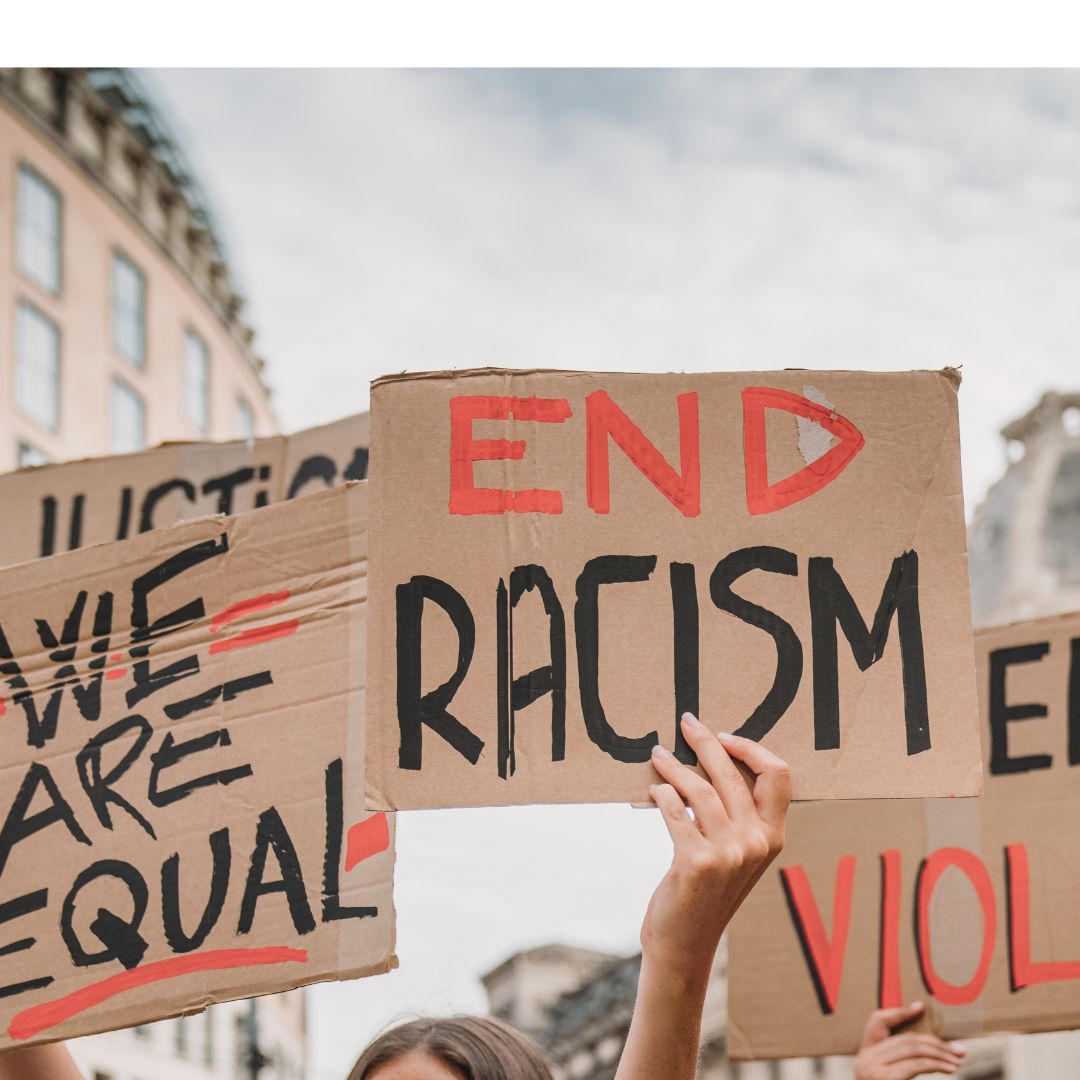 Is This England? For people of colour, ‘Belonging’ and ‘Britishness’ are so often conditional
Is This England? For people of colour, ‘Belonging’ and ‘Britishness’ are so often conditional“The attitudes and rhetoric that spurred these riots and attacks are not new,” argues Emma Slade Edmondson
By Emma Slade Edmondson
-
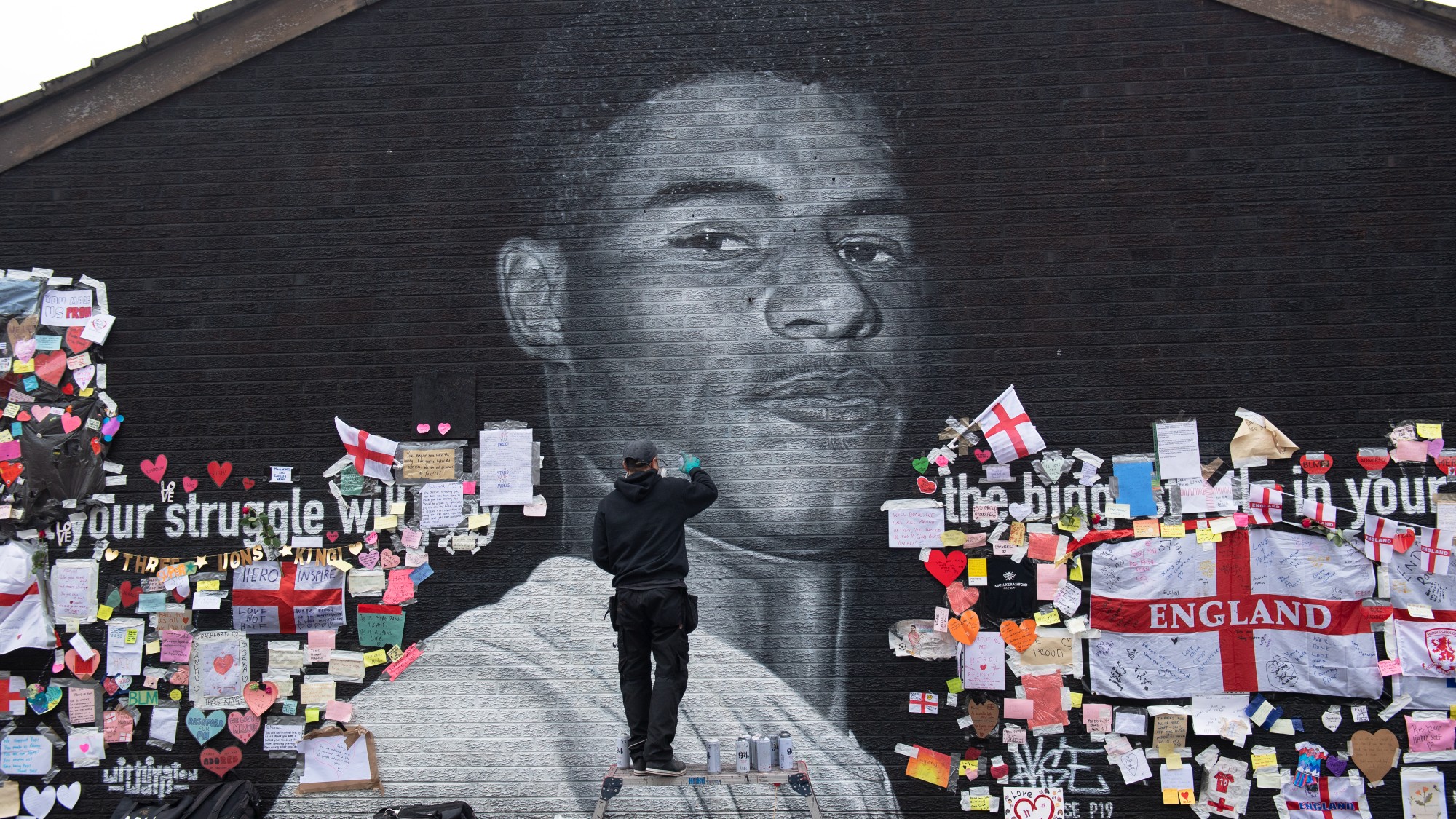 Why it's time we changed the narrative around black success
Why it's time we changed the narrative around black successIn the wake of England players Marcus Rashford, Jadon Sancho and Bukayo Saka being targeted with racial abuse, we need to rewrite the narrative around black success and failure says Charlotte Greene, co-founder of Black Owned eXcellence network, The B.O.X.
By Charlotte Greene
-
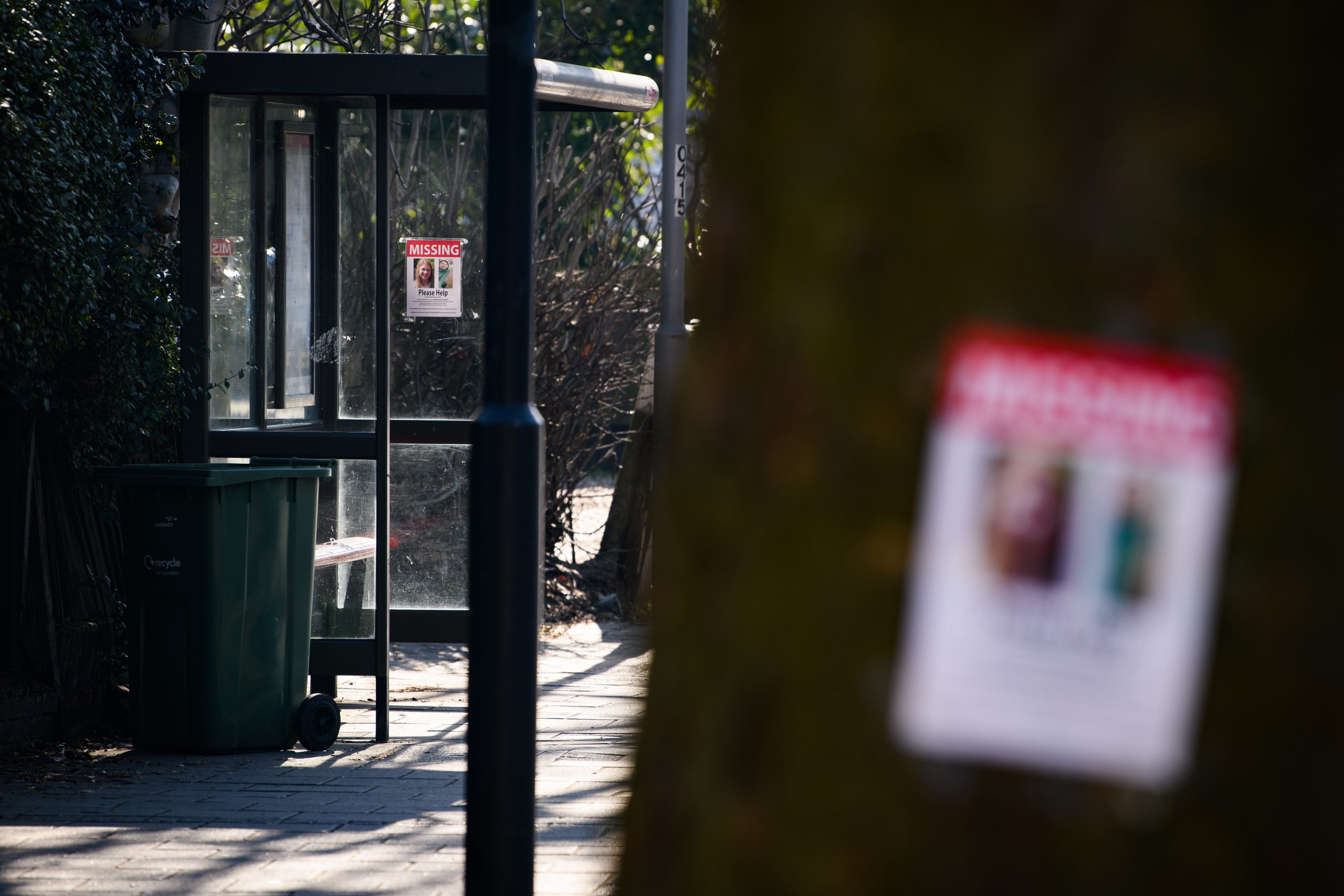 ‘If you’re using the #NotAllMen hashtag, you’re part of the problem’
‘If you’re using the #NotAllMen hashtag, you’re part of the problem’By Jenny Proudfoot
-
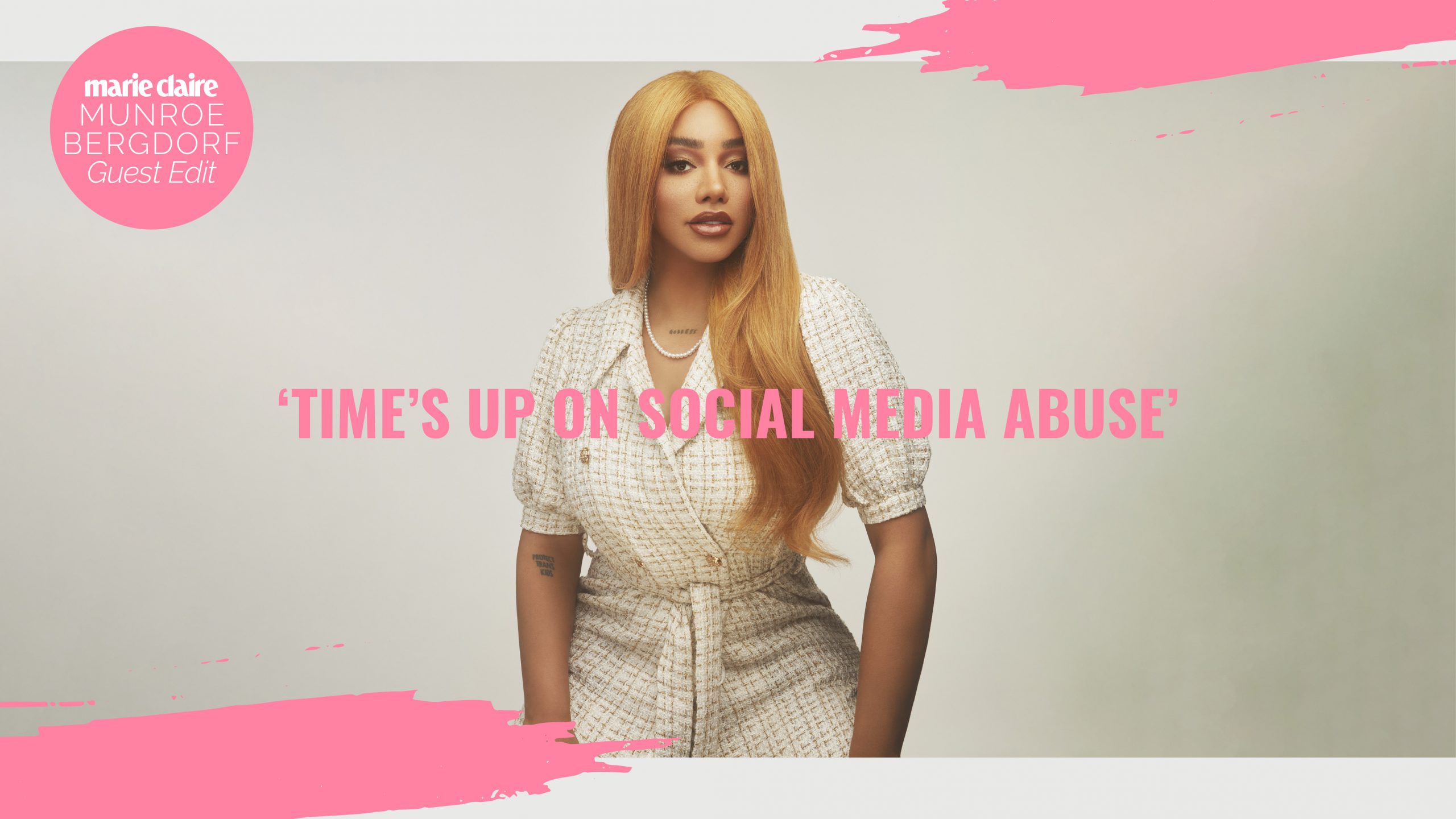 Munroe Bergdorf: 'Time's up on social media abuse'
Munroe Bergdorf: 'Time's up on social media abuse'Activist Munroe Bergdorf on why 2021 must be the year of lasting, impactful change online
By Sophie Goddard
-
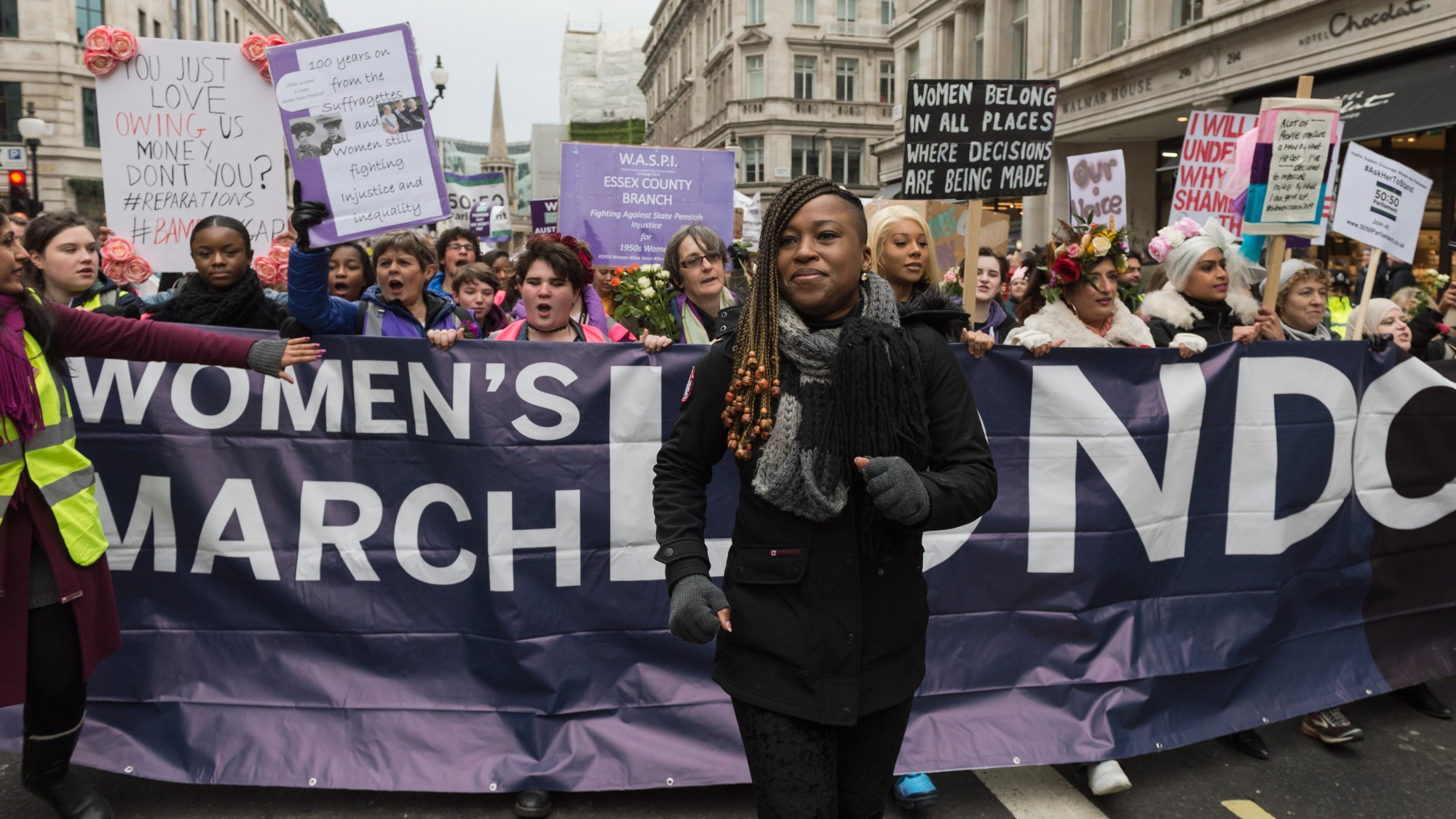 Dr Shola Mos-Shogbamimu: 'We can’t talk about the dehumanisation of Black women without talking about colourism'
Dr Shola Mos-Shogbamimu: 'We can’t talk about the dehumanisation of Black women without talking about colourism'In the wake of the Candice Braithwaite and Rochelle Humes controversy, we hear from activist, attorney and author of This is Why I Resist, Dr Shola Mos-Shogbamimu – who says we must not pit Black women against each other, but instead hold our TV Networks to account.
By Marie Claire
-
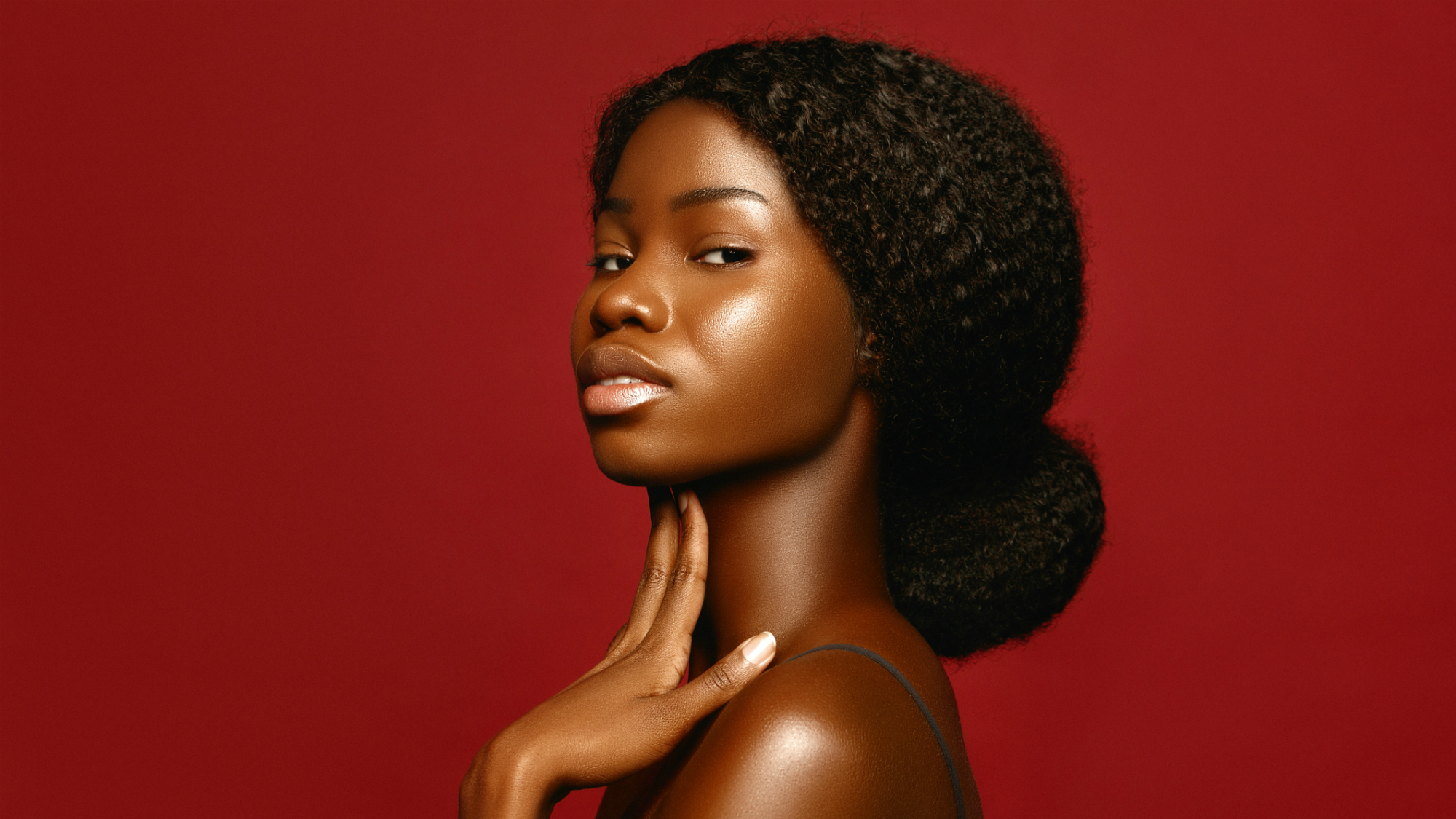 After the Candice Brathwaite TV show storm: 'Are we finally ready to talk about colourism?'
After the Candice Brathwaite TV show storm: 'Are we finally ready to talk about colourism?'Ateh Jewel, Marie Claire's beauty columnist, talks about the Candice Brathwaite and Rochelle Humes docu debacle and why colourism - the preferential treatment of lighter-skinned individuals compared with darker-skinned Black people - must finally be acknowledged and action taken
By Ateh Jewel
-
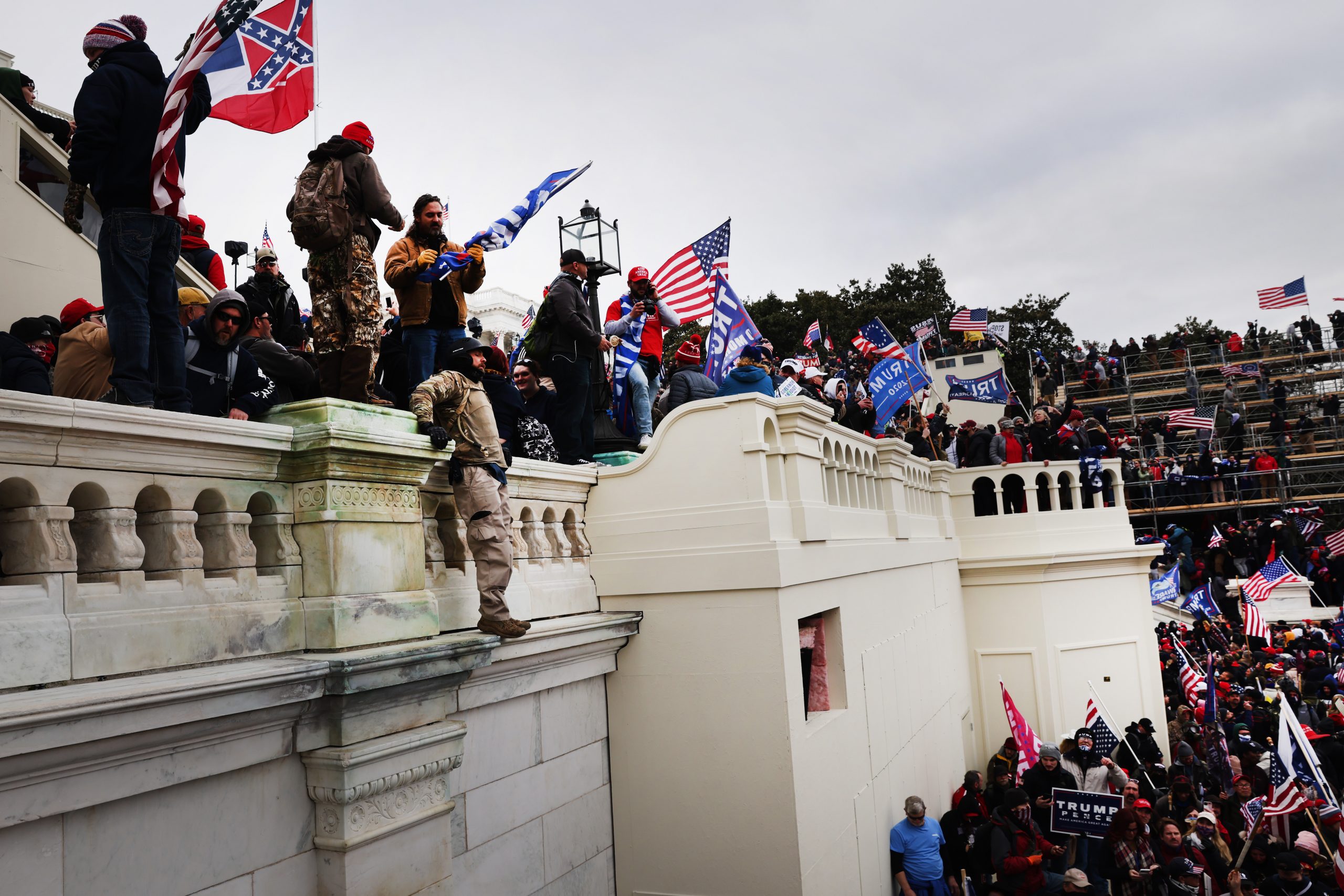 'We cannot ignore the white privilege on display at last night's Capitol Hill riot'
'We cannot ignore the white privilege on display at last night's Capitol Hill riot'By Jenny Proudfoot
-
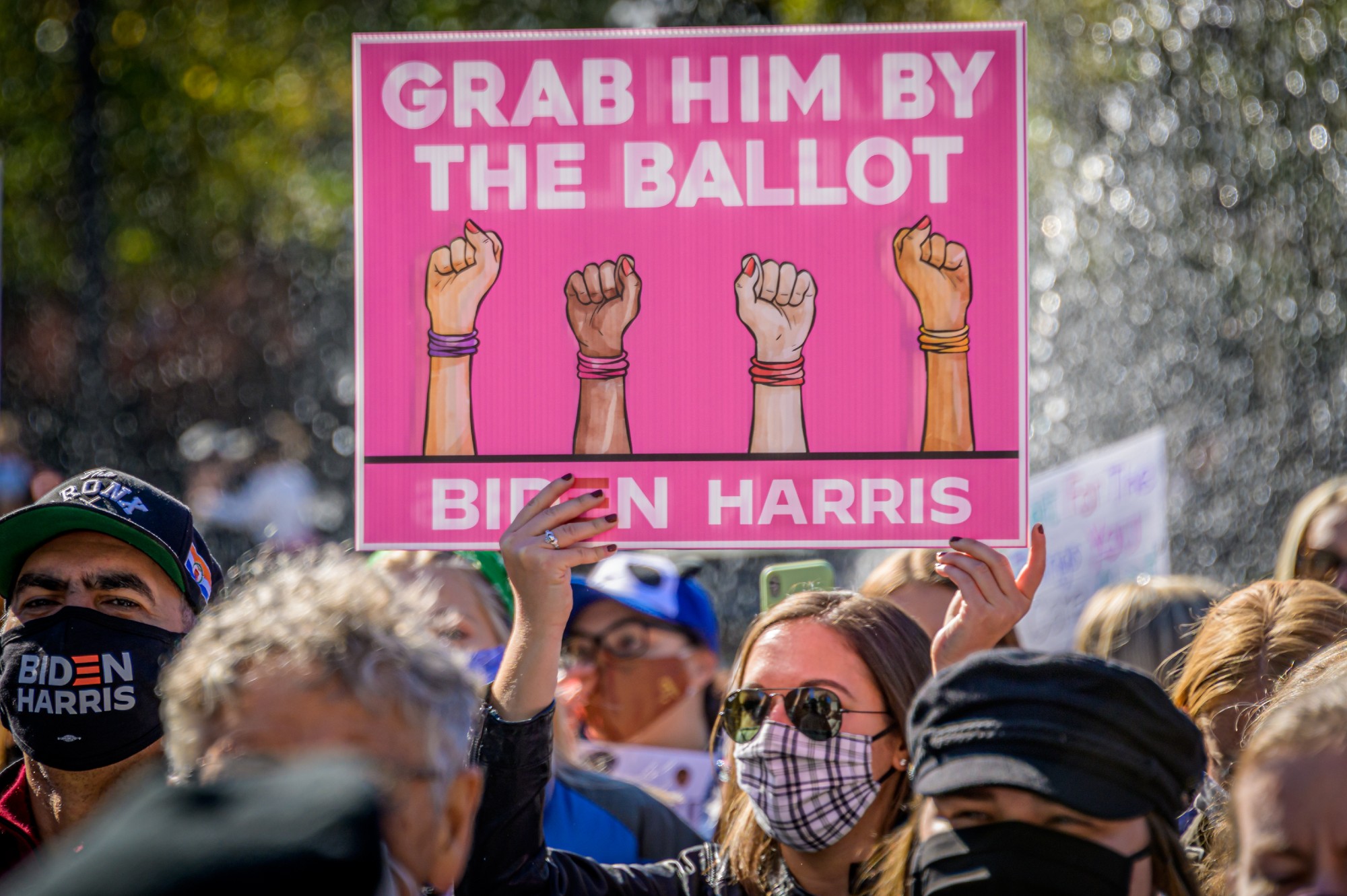 US Election 2020 - An Insider Tells All: ‘There’s no coming back from this, is there’
US Election 2020 - An Insider Tells All: ‘There’s no coming back from this, is there’Days before the most consequential election ever, Becca Andrews, a journalist at US news site Mother Jones, reveals what it's like living in Trump’s America and why, along with tens of millions, she’s holding her breath expecting the worst
By Marie Claire